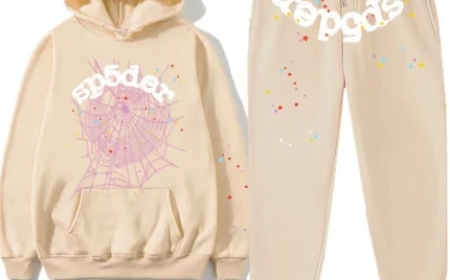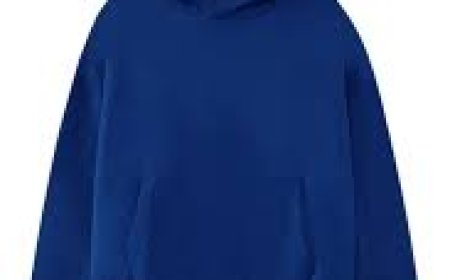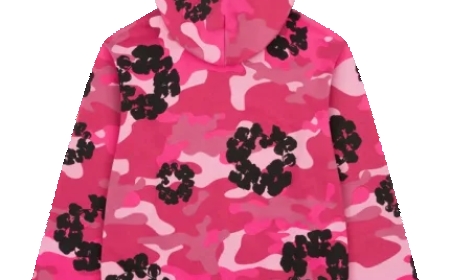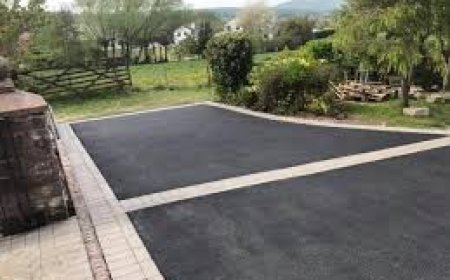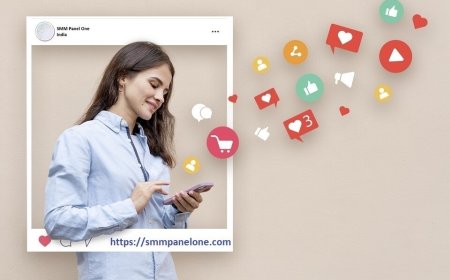Top 10 Miami Markets for Souvenirs
Introduction Miami is more than a tropical getaway—it’s a cultural crossroads where Caribbean rhythms meet Latin soul, where art bursts from street corners, and where every corner tells a story. For visitors, the perfect souvenir isn’t just a trinket; it’s a tangible memory, a piece of Miami’s vibrant identity. But with countless vendors lining South Beach, Little Havana, and Brickell, how do you
Introduction
Miami is more than a tropical getaway—it’s a cultural crossroads where Caribbean rhythms meet Latin soul, where art bursts from street corners, and where every corner tells a story. For visitors, the perfect souvenir isn’t just a trinket; it’s a tangible memory, a piece of Miami’s vibrant identity. But with countless vendors lining South Beach, Little Havana, and Brickell, how do you know which markets offer authentic, high-quality goods you can truly trust?
Too often, tourists leave with mass-produced keychains, plastic palm trees, or knockoff merchandise that lacks heart. The real treasures—the hand-painted murals, locally woven textiles, artisanal coffee blends, and heritage crafts—are hidden in places that prioritize authenticity over volume. This guide reveals the top 10 Miami markets for souvenirs you can trust, where quality, craftsmanship, and cultural integrity are non-negotiable.
Each market listed here has been vetted for consistent product authenticity, transparent sourcing, and community reputation. Whether you’re searching for a Cuban cigar box carved by a third-generation artisan, a limited-edition print from a Miami-based street artist, or organic cocoa beans from a family-run farm in the Keys, these are the places where your purchase carries meaning—and integrity.
Why Trust Matters
In today’s global marketplace, trust has become the rarest commodity. When you buy a souvenir, you’re not just acquiring an object—you’re investing in a story, supporting a maker, and honoring a culture. In Miami, where tourism drives a significant portion of the local economy, the line between authentic craftsmanship and mass-produced imitation is often blurred.
Untrustworthy vendors may sell items labeled “Made in Miami” that were actually manufactured overseas, or pass off generic imports as “handmade Cuban art.” These practices not only mislead consumers but also undermine the livelihoods of local artisans who spend months perfecting their craft. When you choose to buy from trusted markets, you directly contribute to preserving Miami’s cultural heritage and empowering small businesses that rely on ethical sales.
Trust is built through transparency. Trusted markets clearly label origins, provide background on creators, and often feature artisans working on-site. They avoid misleading claims like “exclusive” or “limited edition” unless proven. They price fairly—not too low to suggest poor quality, not too high to exploit tourists. They welcome questions, offer receipts, and stand by their products.
Moreover, trust extends beyond the transaction. The best markets in Miami are deeply embedded in their communities. They collaborate with local schools, sponsor cultural festivals, and give back through art programs. Their reputation isn’t built on flashy signs or social media ads—it’s earned over years of consistent integrity.
Choosing a trusted market means you walk away with more than a keepsake. You carry a piece of Miami’s soul, knowing it was created with respect, skill, and pride. That’s the difference between a souvenir and a legacy.
Top 10 Miami Markets for Souvenirs You Can Trust
1. The Miami Design District Artisan Market
Nestled in the heart of Miami’s most upscale design district, this weekly open-air market brings together over 50 local designers, sculptors, and textile artists. Unlike typical tourist stalls, every vendor here is vetted through a rigorous application process that evaluates craftsmanship, originality, and sourcing ethics. You’ll find hand-blown glass sculptures inspired by Biscayne Bay, ceramic tiles painted with Afro-Caribbean motifs, and leather journals embossed with Miami’s skyline—all made in Florida.
Artisans often work live during market hours, allowing visitors to witness the creative process. Many offer custom engraving or personalization on-site. The market is managed by the Miami Artisans Guild, a nonprofit that ensures fair wages and sustainable materials. You won’t find imported plastic souvenirs here—only pieces that tell a Miami story.
2. Little Havana’s Calle Ocho Craft Fair
Every Sunday, Calle Ocho transforms into a vibrant open-air gallery of Cuban-American heritage. This is the most authentic spot in Miami to find souvenirs rooted in Cuban tradition—without the tourist markup. Look for hand-carved wooden cigar boxes made by artisans from Pinar del Río, hand-painted guayabera shirts stitched with traditional embroidery, and small-scale bronze statues of Abakuá deities.
Many vendors are second- or third-generation Cuban immigrants who inherited their crafts from family. The fair is organized by the Cuban Heritage Coalition, which ensures all products are either made in Cuba (imported legally) or locally crafted using traditional techniques. You’ll also find rare vinyl records of 1950s Cuban jazz and hand-ground coffee beans roasted in small batches using family recipes.
Unlike commercial gift shops, vendors here speak directly to customers, sharing stories of their families and the cultural significance behind each item. This isn’t shopping—it’s cultural exchange.
3. The Wynwood Walls Art Collective Stall
Wynwood is world-famous for its murals, but few know that the artists behind them also sell original, limited-edition prints and hand-screened apparel at their official stall near the main entrance. The Wynwood Walls Art Collective operates a single, verified vendor booth that sells only works created by the 20+ artists who contributed to the neighborhood’s iconic walls.
Each print is numbered, signed, and comes with a certificate of authenticity. T-shirts are printed with water-based inks on organic cotton, and all designs are original—no reproductions of street art sold elsewhere. The collective reinvests 100% of profits into youth art programs and mural preservation.
Visitors can meet the artists on weekends, watch live screen-printing, and even commission custom pieces. This is the only place in Miami where you can buy a genuine piece of Wynwood’s global art movement—not a knockoff from a sidewalk vendor.
4. Miami Seaquarium Gift Shop (Ethically Curated)
Don’t overlook the gift shop at Miami Seaquarium—it’s one of the most trustworthy sources for marine-themed souvenirs in the city. Unlike generic aquarium shops that sell plastic dolphins and cheap magnets, this shop partners directly with Florida-based marine conservation nonprofits and eco-artisans.
Products include hand-carved sea turtle figurines made from reclaimed driftwood, recycled glass bottles transformed into ocean-inspired lamps, and children’s books written by local marine biologists. All proceeds support coral reef restoration and sea turtle rehabilitation programs.
Labels clearly state the environmental impact of each purchase, and no products contain coral, shells from protected species, or synthetic materials that harm marine life. It’s a rare example of a tourist attraction that prioritizes education and conservation over profit.
5. Coconut Grove Art Fair (Monthly)
Hosted by the Coconut Grove Art Society, this monthly fair is Miami’s oldest continuous art market, dating back to 1957. Over 100 juried artists display original paintings, jewelry, ceramics, and mixed-media pieces—all created within a 50-mile radius of Miami.
Each artist must submit documentation proving the origin and process of their work. No imported goods are allowed. You’ll find intricate shell mosaics made from locally collected seashells, abstract oil paintings capturing Miami’s light, and hand-forged silver jewelry inspired by Seminole beadwork.
Artists are present daily, discussing techniques and inspirations. Many offer workshops. The fair is non-commercial by design—no franchise vendors, no licensed characters, no generic “I ❤️ Miami” merchandise. It’s pure, unfiltered local creativity.
6. The Vizcaya Museum & Gardens Gift Shop
Housed in one of Miami’s most historic estates, the Vizcaya Museum’s gift shop is a masterclass in curated, culturally grounded souvenirs. Rather than selling mass-produced trinkets, the shop offers reproductions of artifacts found on the estate, designed in collaboration with historians and local artisans.
Highlights include hand-painted ceramic tiles replicating 1920s Italian mosaics, linen napkins embroidered with the Vizcaya family crest, and books on Mediterranean architecture written by curators. All items are made in small batches using traditional methods.
The shop also sells organic lavender soap made from plants grown in Vizcaya’s gardens, and honey harvested from hives on the property. Every product is tied to the estate’s history and environment, making it one of the most meaningful places to buy a keepsake in Miami.
7. The Coral Gables Farmers Market (Artisan Corner)
While known for fresh produce, the Coral Gables Farmers Market dedicates a section exclusively to handmade goods from local makers. This curated corner features items like beeswax candles infused with orange blossom, hand-bound journals using recycled paper from Miami’s old printing presses, and ceramic planters glazed with native flora patterns.
Each vendor must be a resident of Miami-Dade County and demonstrate that their materials are locally sourced or sustainably harvested. No resale items are permitted. The market enforces a strict “no imports” policy, ensuring every souvenir has a direct Miami connection.
Many artisans offer tours of their studios by appointment. You might leave with a jar of mango-basil jam, a hand-carved wooden spoon, and a print of a historic Coral Gables street scene—all from the same maker.
8. The Art Deco Welcome Center Boutique
Located in the heart of Miami Beach’s Art Deco Historic District, this boutique is operated by the Miami Design Preservation League. It’s the only official source for licensed, historically accurate souvenirs inspired by the 1930s–1950s architecture of the area.
Products include hand-pressed postcards using original vintage designs, resin coasters molded from historic building façades, and limited-edition posters printed on archival paper. Each item is approved by the League’s design committee to ensure historical fidelity.
Proceeds fund the restoration of endangered Art Deco buildings. The boutique also offers guided walking tours that explain the symbolism behind each design element—making your souvenir part of a larger preservation effort.
9. The Florida Keys Artisan Collective Pop-Up (Seasonal)
Though technically outside Miami city limits, this rotating pop-up market appears monthly at key locations in downtown Miami and features only artisans from the Florida Keys. It’s the most reliable place to find authentic Keys-made goods: hand-carved conch shell jewelry, sea glass mosaics, and handmade rum-infused chocolates from family distilleries.
All vendors are vetted by the Keys Artisans Association, which requires proof of residency and production location. No products are sourced from mainland factories. The market emphasizes sustainability—shells are collected only from beaches where harvesting is permitted, and packaging is compostable.
Visitors can meet the fishermen, glassblowers, and chocolatiers who create each item. It’s a rare opportunity to connect with the people who live and work in the Keys—and bring home a piece of their world.
10. The Miami Dade College Student Art Gallery & Boutique
One of Miami’s most underrated sources for authentic souvenirs is the student-run boutique at Miami Dade College’s Wolfson Campus. Every item is created by students in the college’s fine arts, fashion, and design programs.
Expect bold, innovative pieces: digital prints of Miami’s skyline reimagined in Afrofuturist style, upcycled denim jackets painted with graffiti motifs, and handmade soaps using local citrus and sea salt. Prices are affordable, and every purchase supports the next generation of Miami creatives.
The boutique operates like a gallery—each item is labeled with the student’s name, major, and inspiration. You can even meet the creators during monthly open studio nights. This isn’t just a souvenir shop; it’s a living classroom, and your purchase helps fund art supplies for future students.
Comparison Table
| Market Name | Location | Product Authenticity | Local Artisan Involvement | Transparency | Community Impact |
|---|---|---|---|---|---|
| Miami Design District Artisan Market | Design District | 100% locally made | Artisans present daily | Clear origin labels, guild-certified | Supports local guild and workshops |
| Calle Ocho Craft Fair | Little Havana | Cuban heritage, locally replicated | Family artisans, multi-generational | Stories shared verbally and in print | Preserves Cuban traditions |
| Wynwood Walls Art Collective Stall | Wynwood | Original artist works only | Direct from muralists | Numbered, signed, certified prints | Funds youth art programs |
| Miami Seaquarium Gift Shop | Miami Beach | Eco-certified, marine-safe | Partners with conservation groups | Environmental impact disclosed | Supports coral and turtle rehab |
| Coconut Grove Art Fair | Coconut Grove | 100% Miami-Dade made | Juried artists only | Documentation required for entry | Oldest continuous art market in FL |
| Vizcaya Museum & Gardens Gift Shop | Miami Beach | Historically accurate reproductions | Collaborates with curators | Every item tied to estate history | Funds preservation of historic site |
| Coral Gables Farmers Market (Artisan Corner) | Coral Gables | Resident-only, no imports | All makers are local residents | Strict residency and sourcing rules | Promotes sustainable local economy |
| Art Deco Welcome Center Boutique | Miami Beach | Historically licensed designs | Managed by preservation league | Approved by design committee | Funds Art Deco building restorations |
| Florida Keys Artisan Collective Pop-Up | Downtown Miami (rotating) | Only Keys residents, sustainable | Fishermen, glassblowers, chocolatiers | Harvesting permits verified | Connects Miami to Keys culture |
| Miami Dade College Student Art Gallery | Wolfson Campus | Student-created originals | Students are the makers | Each item labeled with creator info | Funds art education and supplies |
FAQs
How can I tell if a souvenir is genuinely made in Miami?
Look for clear labeling that states the maker’s name, location, and production method. Trusted markets will display artisan bios, provide certificates of authenticity, and allow you to meet the creators. Avoid vendors who use vague terms like “handcrafted” without specifics or who refuse to answer questions about sourcing.
Are there any markets that sell authentic Cuban products?
Yes. Calle Ocho Craft Fair is the most reliable source for legally imported Cuban goods, such as cigars, rum, and handmade crafts. All items comply with U.S. import regulations and are sourced directly from Cuban artisans or their descendants living in Miami. Be cautious of vendors claiming to sell “Cuban” items at very low prices—they’re likely counterfeit.
Is it better to buy souvenirs from markets or museums?
Both can be trustworthy, but for different reasons. Museums like Vizcaya and the Art Deco Welcome Center offer historically accurate, curated items tied to cultural preservation. Markets like Wynwood Walls and Coconut Grove Art Fair offer direct access to living artists and contemporary creativity. For meaningful, culturally grounded souvenirs, prioritize places that connect you to the people and stories behind the products.
What should I avoid when buying souvenirs in Miami?
Avoid vendors selling identical items in bulk, especially near tourist hotspots like South Beach boardwalks. Steer clear of products made from endangered materials (coral, turtle shell, sea turtle bone), items labeled “Made in China” but marketed as “Miami-made,” and those with no information about the maker. If a vendor seems evasive or overly pushy, walk away.
Can I find vegan or eco-friendly souvenirs in Miami?
Absolutely. Markets like the Miami Seaquarium Gift Shop, Coral Gables Farmers Market, and Florida Keys Artisan Collective specialize in sustainable, cruelty-free, and plastic-free products. Look for items made from recycled materials, natural dyes, organic ingredients, and compostable packaging. Many vendors proudly display eco-certifications.
Do any of these markets accept credit cards or only cash?
Most trusted markets now accept credit cards, especially those managed by nonprofits or institutions like museums and colleges. However, some smaller artisan stalls—particularly in Little Havana and at pop-ups—prefer cash for lower fees and faster transactions. It’s wise to carry a mix of both.
Are there any markets open year-round?
Yes. The Miami Design District Artisan Market, Vizcaya Museum Gift Shop, Art Deco Welcome Center Boutique, and Miami Dade College Boutique are open daily. Others, like Calle Ocho Craft Fair and Coconut Grove Art Fair, operate on a weekly or monthly schedule. Always check official websites before visiting for seasonal hours.
Can I commission a custom souvenir?
Many artisans at these markets welcome custom requests. The Miami Design District, Wynwood Walls, and Coconut Grove Art Fair all offer personalized engraving, sizing, or design adjustments. Be prepared to allow extra time—custom pieces often take days or weeks to complete. Always confirm pricing and delivery terms in writing.
Why should I care where my souvenir comes from?
Every purchase is a vote. When you buy from a trusted, local maker, you support cultural preservation, environmental sustainability, and economic equity. You help ensure that Miami’s rich artistic traditions continue to thrive—not just for tourists, but for future generations of Miamians. A souvenir from a trusted source carries meaning, memory, and moral weight.
Conclusion
Miami’s soul isn’t found in its skyline or its beaches—it’s in the hands of the artisans, the stories of the families, and the quiet pride of creators who pour their heritage into every brushstroke, carve, and stitch. The top 10 markets highlighted here are more than shopping destinations; they are sanctuaries of authenticity in a city often overwhelmed by commercial noise.
When you choose to buy from these places, you’re not just taking home a keepsake—you’re becoming part of a larger story. You’re helping a Cuban grandmother pass down her embroidery technique. You’re funding a student’s first art show. You’re preserving a century-old mural. You’re giving voice to the quiet makers who keep Miami’s culture alive.
Next time you visit, skip the generic gift shops. Wander into these markets. Ask questions. Meet the makers. Let the scent of roasted coffee, the sound of hand-hammered metal, and the warmth of a local’s smile guide your choices.
The best souvenirs aren’t the ones you can buy anywhere. They’re the ones you can only find here—and only from those who truly belong.




